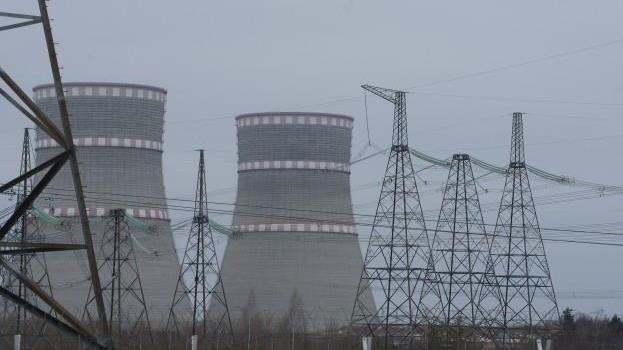Iran to turn off IAEA cameras at nuclear sites amid tension
UN nuclear agency is set to vote on anti-Iran resolution pitched by US, Europeans
 FILE PHOTO
FILE PHOTO
TEHRAN, Iran
Iran on Wednesday announced plans to turn off some cameras of the International Atomic Energy Agency (IAEA) at its nuclear sites, amid rising tensions between Tehran and the UN nuclear watchdog.
In a statement, Iran’s nuclear agency accused the IAEA of being “ungrateful for Iran's extensive cooperation,” saying surveillance cameras of the online enrichment monitor (OLEM) will be turned offline from today.
Atomic Energy Organization spokesperson Behrouz Kamalvandi told state TV that Iran had decided to turn off all beyond-safeguards cameras that were recording data at Iran’s nuclear sites, and that no information would be recorded from now on.
He said Tehran “cannot be cooperative” while the IAEA displays “unreasonable behavior.”
More than 80% of the IAEA's cameras at Iran’s nuclear sites operating under the safeguards agreement, however, will keep functioning as usual, the nuclear agency said in the statement.
In separate remarks on Wednesday, Iran’s nuclear body chief Mohammad Eslami said Tehran had declared all sites that hosted past nuclear activities.
"Iran has no hidden or undocumented nuclear activities or undisclosed sites," he said, calling IAEA reports “fake documents” that seek to “maintain maximum pressure" on Iran.
He said the move by three European countries and the US to present a draft resolution against Iran was a “political one," adding that Iran has had “maximum cooperation with the IAEA."
The development comes as the IAEA board of governors is meeting in Vienna to discuss the UN nuclear agency’s annual report, which has been very critical of Iran’s nuclear activities.
The US and its three European allies – France, Germany, and the UK – have drafted a resolution, which if adopted at the meeting will affect Iran's cooperation with the UN nuclear agency.
IAEA chief Rafael Grossi said Monday that Iran had failed to ease concerns about its nuclear program by refusing to provide answers about uranium traces at three undeclared sites.
Grossi, whose visit to Israel ahead of the IAEA board of governors meeting created controversy, said the answers received by the UN nuclear agency from Iran have "not been technically credible.”
The anti-Iran resolution, which will be debated and voted on during the quarterly meeting of the IAEA's 35-member board, is reportedly milder in tone but calls for increased cooperation from Tehran.
Talks between Iran and world powers in Vienna to salvage the 2015 nuclear deal have been stalled amid key disagreements between Tehran and Washington.
The US walked out of the deal in May 2018 and reinstated sanctions on Iran. In response, Tehran ramped up its uranium enrichment process from 3.65% stipulated in the deal to 60%.
Without specifying Iran's reaction to the potential resolution at the IAEA meeting, Eslami on Monday said the decision to enrich uranium up to 90% purity rests with relevant officials.
Anadolu Agency website contains only a portion of the news stories offered to subscribers in the AA News Broadcasting System (HAS), and in summarized form. Please contact us for subscription options.







